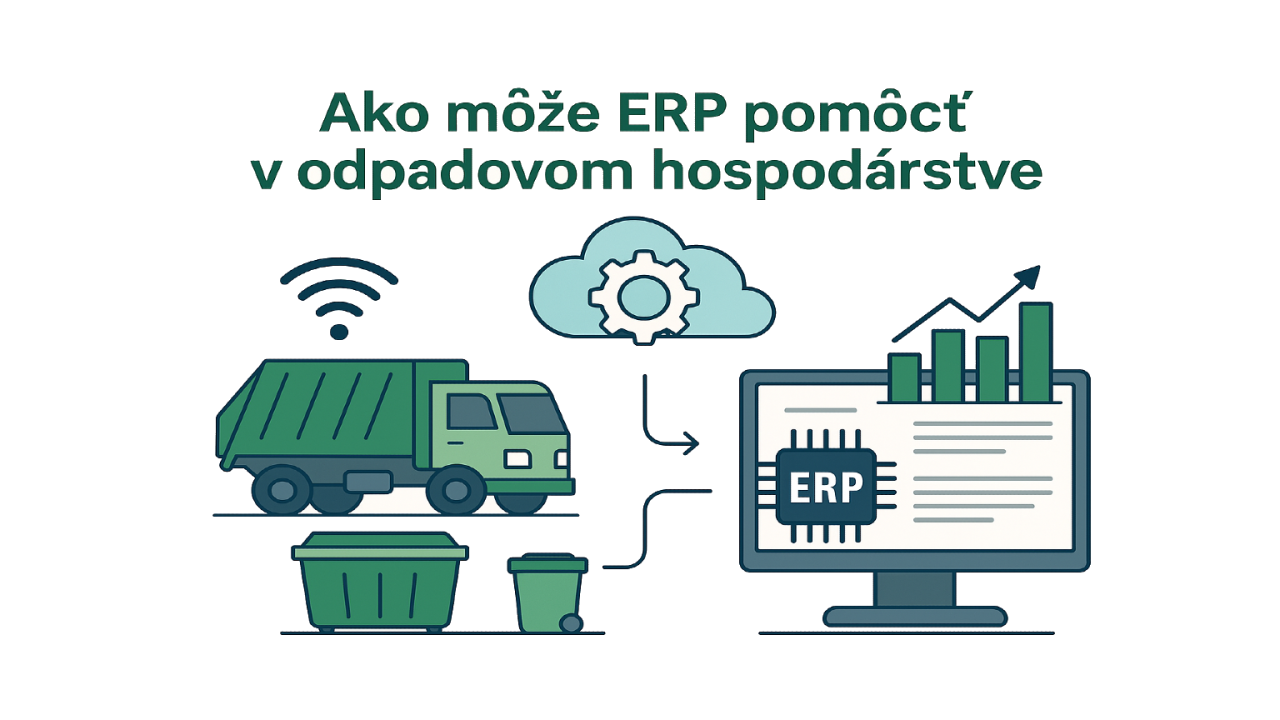How ERP Can Help in Waste Management
ERP as a Catalyst for Digital Transformation in Waste Management
As digital transformation becomes an inseparable part of success across industries, modern Enterprise Resource Planning (ERP) systems are gaining prominence. These systems are no longer confined to manufacturing, finance, or logistics — they are increasingly finding application in a domain often overlooked: waste management.
Thanks to rapid technological progress and new ERP trends in 2025, entirely new opportunities are emerging to optimize, automate, and bring transparency to waste management processes — ultimately contributing to a more sustainable operation.
Digitalization as the Key to Efficiency
Companies operating in waste management handle vast amounts of data daily — from waste generation and sorting to transport, recycling, and disposal. Traditional methods of record-keeping and planning are time-consuming, error-prone, and often lack real-time visibility.
ERP systems address these issues by digitalizing, automating, and integrating all processes into a single platform.
This gives organizations access to up-to-date, synchronized data, clear reporting tools, and process optimization capabilities — all in one place.
Cloud ERP and Field Mobility
With the rise of cloud-based ERP solutions, organizations can now manage operations from anywhere.
This is especially valuable for collection yard operators, logistics firms, and recycling facilities.
Field workers can record data directly via mobile devices — for example:
- the quantity and type of waste received,
- equipment status, or
- transport completion.
This improves accuracy, reduces delays, and eliminates paperwork.
IoT Integration and Real-Time Waste Tracking
The integration of IoT technologies (such as RFID chips, container or vehicle sensors) with ERP enables real-time tracking of waste movement.
This allows companies to:
- Plan collection routes precisely,
- Prevent container overflows,
- Optimize logistics and fleet usage.
The result: lower fuel consumption, fewer emissions, and higher operational efficiency.
Artificial Intelligence and Predictive Analytics
Modern ERP systems enhanced with AI and machine learning give companies tools to analyze waste production trends and forecast future needs.
These systems can:
- Predict demand for recycling capacities,
- Plan equipment maintenance schedules,
- Optimize human resource allocation.
ERP platforms can also monitor the “life path” of each waste item — from its origin through transport to final processing.
Such traceability supports regulatory compliance, partner reporting, and sustainability audits.
AI-driven ERP modules can even detect anomalies — such as irregular waste volumes or unusual employee behavior — helping prevent fraud, errors, or accidents.
Sustainability as a Strategic Priority
One of the strongest trends in ERP today is the focus on sustainability.
Modern systems track environmental indicators such as:
- carbon footprint,
- amount of recycled materials,
- energy and water consumption.
This data supports responsible business practices, compliance with ESG and legal requirements, and access to sustainability-based funding.
ERP systems can also integrate external customer portals, where municipalities, companies, or citizens can:
- submit waste collection requests,
- track pick-ups and payments,
- or view recycling reports.
This reduces administrative workload and improves customer satisfaction.
Better Collaboration and Cost Transparency
ERP systems enhance collaboration across departments and between companies and public institutions.
Integrated communication tools make it easier to share data, report results, and coordinate operations.
Such transparency in waste management strengthens public trust and partner confidence.
Maintenance Management (CMMS Integration)
An ERP system can include a CMMS module (Computerized Maintenance Management System) to:
- Plan preventive maintenance (e.g., for collection trucks or compactors),
- Record breakdowns and repairs (who, when, what, cost),
- Track equipment life cycles from purchase to disposal,
- Prevent unexpected downtime and reduce costs.
This ensures higher equipment availability and lower maintenance expenses.
Conclusion
ERP systems are becoming indispensable tools even in industries as specific as waste management.
They deliver not only efficiency but also sustainability, predictability, and accountability.
A well-designed and implemented ERP solution can dramatically improve transparency, operational performance, and environmental outcomes — giving organizations a real competitive advantage.
By adopting modern ERP solutions — whether cloud-based, IoT-integrated, or AI-enhanced — companies can reduce their ecological footprint, improve service quality, and prepare for the challenges of the future.
ERP is the next step toward smarter, more responsible waste management.

